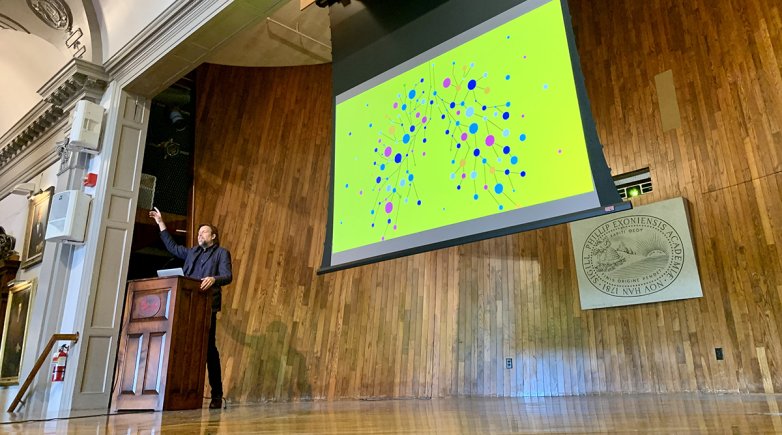Happiness is just a deep breath away, author says
Bestselling science writer James Nestor shares research on breathing with Exeter assembly.
James Nestor addressed Exeter assembly Nov. 19, sharing his research from 10 years of study on human breathing.
How can you lessen your susceptibility to diabetes and heart disease, lower your stress, sharpen your focus, fight tooth decay and make yourself more physically attractive?
Just breathe. Or rather, just breathe correctly.
This is the conclusion James Nestor has come to after 10 years spent studying the science of breathing — and the utter failure of humankind to do it the right way.
“Me, you, and everyone you know, are part of a species that are the worst breathers of any animal in the whole animal kingdom,” Nestor claims.
His book, Breath: The New Science of a Lost Art, has been translated into 30 languages and has drawn near-universal praise since its release in 2020. One reviewer called the book an “invigorating user’s manual for the respiratory system.” Another said it is “an eye-opening, epic journey of human devolution that explains why so many of us are sick and tired.”
Nestor brought his research to Exeter on Nov. 19, speaking at assembly and conducting a follow-up Q+A with students over lunch.



